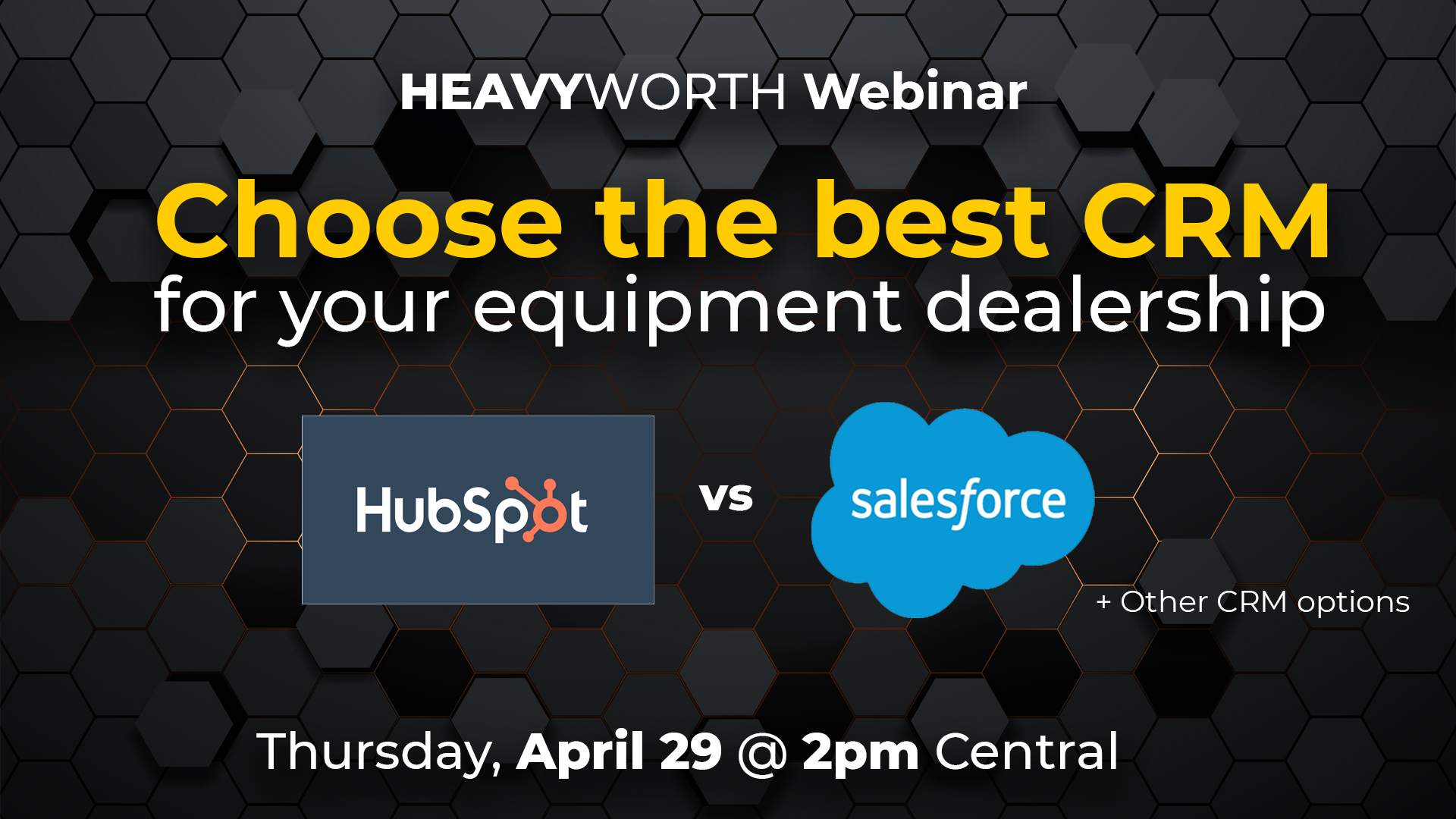Using HeavyWorth to capture information to value a combine
Our clients talk about how easy HeavyWorth is. While it is easy, what we think they're really describing is the reduction in hassle and time spent dealing with multiple data sources. Organizing all valuation data in one platform really does streamline the process, but it can be hard to understand exactly how it works without seeing it in action. Watch as Bill Albaugh demonstrates how to use the HeavyWorth platform to value a combine.
Hi, I'm Bill with HeavyWorth and I'm here to show you how to run the HeavyWorth app.
First and foremost, we've got a Lexion 740TT combine here that we're going to run an evaluation on. So we've got New Catalog. The customer's name is going to be
John Doetoday and his email is going to bejohn@gmail.comand let's say he's inManhattan, Kansas,and the reason we're doing the evaluation today is for trade-in purposes from a dealership standpoint. There's also a place down here for additional notes, so if this is a long-time customer or first-time customer — or anything you want the evaluator to know about the customer — you can put that in there right now.So we're going to press the New Asset button and the first thing we're going to do is we're going to get a profile photo. So the profile photo is just to take a corner shot here. The next thing to do is we're going to get the serial number. The serial number plate on this combine is on the other side of the combine so we're going to go around here to get it. And with this combine — the serial number plates are all around on the various pieces of equipment, but on this particular combine it's back here in the corner and the app has a button where you can take a picture so that way if you happen to fat finger the serial number wrong there's a picture of it that actually verifies it. So we've got the picture and then we're going to type in the serial number as well —
C7800569. See, I fat fingered it. That's why it's always good to take a good clean picture of it just in case it doesn't go right. Service meters — we're going to go around to the service meter on this combine. We're going to get up in the cab so you're going to have to follow me around here to the cab. As with the serial number plate, on the hour meter — you can take a picture of it. That way, again, if you fat finger the wrong number, the picture will verify the hours for you.So we're going to take a picture of the hour meter. In this case, this combine only has 148 hours on it, and it has not been in the field so there's no separator hours. In the combine, you're going to want to put engine and separator hours. Tractors, and other pieces of equipment — you're just going to put the hours in.
From there, we're going to take some additional pictures of the combine. This particular combine's hardly been used so we're not going to spend a lot of time on the wear parts. But if you get into a combine to where there's a lot of wear, you're going to want to get in and take pictures of the chopper knives. If it's a walker machine, up in the walkers — open up the sides to the rotors to get good valuation pictures for your equipment evaluator. So we're going to get a picture of the combine here in the front. If it was a combine with some hours on it you want to get a good shot of the feeder house. Combines that have lateral tilt or Contour Master, those types of things — you'd want to take a picture up here. A track combine — you're going to want to take a picture of the tracks — of your undercarriage. Get good pictures of the tires, if it was a tires machine. In this case it's got a track. You've got clean grain.
You've got your rear tires. It's important, especially like on a tractor, to get a good visualization of what the remaining wear left on the tires is because that's a huge expense. You've got a spreader and the chopper knives. The back end of the combine — because you're wanting to look and make sure there's no damage as far as like if it's hit something. Maybe get another profile shot of the combine on this side.
And from there we're going to go to Asset Description. Let's say this is a
2019 Claas Lexion 740— and you want to make sure we get aTTon this because it's a track unit — and then combine. And then from there there's a button for Features if you want to add, you know, technology items. This unit has a CEBIS unit. Those types of things go in there — engine, AC and heat. Problems — if you want to put problems in there as far ashas oil leaks, it has, you know,wear on the clean grain augers. All your notes and stuff for the evaluation can go right in here. And then, also, notes down here — any additional notes. You know,it was a one owneranddriven to church on Sundays.You want to make sure you put everything in here that you want to evaluate to know so he can put a good, accurate value on it to get your customer the best trade value you can to try to sell him the piece of equipment.
Done. So then you go from Capture in Progress to Valuation Requested. Now that automatically sends an email straight to your equipment evaluator. He sees that email. He clicks on the link and then he goes and sets the Valuation in Progress and then he evaluates that piece of equipment. Then, when he's done, he puts his numbers on it however way your company evaluates equipment. He puts a trade number on it, maybe the advertised price, maybe a cash price — any possible reconditioning expenses. He puts that all in there and then clicks Finalized. Once he clicks Finalized it comes automatically right back to you with the trade evaluation. So, theoretically, you can get this done — and we've been here for 10 minutes. We've gotten this all done in 10 minutes and sent to your used equipment evaluator. He can send you a value back right away and you can give that to your customer right away or it enables you to be able to drive to the next farm and go see that next customer. So there is no driving back and forth to the store to download pictures on your computer, finding your wireless connection and then sending an email to your evaluator and waiting for it. It saves time and money. Thank you very much.
We offer a free 14-day trial of our platform. It's easy to get started, and there's no obligation to continue if it's not right for you or your dealership — but we think it will be! Get started today.

